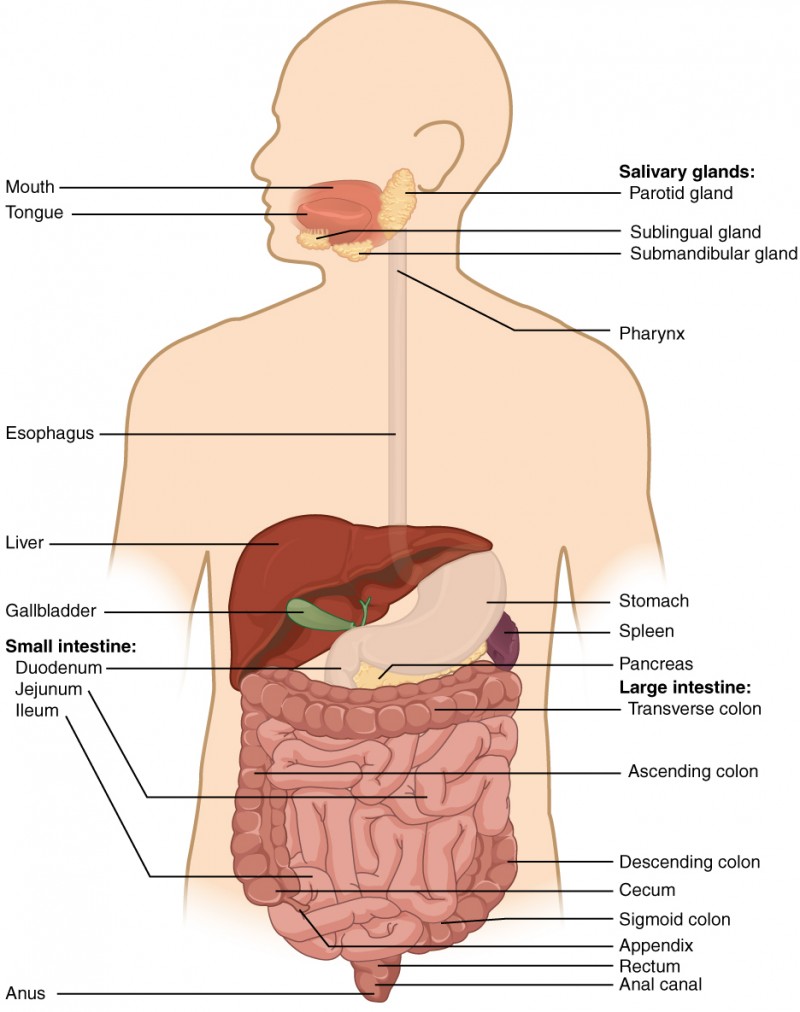
The Human Digestive System
The human digestive system is a group of organs that work together to break down food, absorb nutrients, and remove waste. This complex system allows the body to turn the food we eat into energy and building blocks for growth, repair, and overall health.
Main Organs of the Digestive System
The digestive system includes both the gastrointestinal (GI) tract and accessory organs. Let’s explore the key parts:
- Mouth: Digestion begins in the mouth, where food is chewed and mixed with saliva. Saliva contains enzymes that begin breaking down carbohydrates.
- Esophagus: A muscular tube that moves food from the mouth to the stomach through a wave-like motion called peristalsis.
- Stomach: The stomach churns food and mixes it with digestive juices. Acid and enzymes break down proteins into smaller parts.
- Small Intestine: This long, coiled tube is where most digestion and nutrient absorption happens. The pancreas and liver send enzymes and bile here to aid in digestion.
- Large Intestine (Colon): Absorbs water and minerals from undigested food and forms solid waste (feces).
- Rectum and Anus: Store and eliminate waste from the body.
Accessory Organs
- Liver: Produces bile, which helps break down fats and also processes nutrients from the blood.
- Gallbladder: Stores bile and releases it into the small intestine when needed.
- Pancreas: Produces enzymes that help digest carbohydrates, proteins, and fats. It also regulates blood sugar levels.
The Process of Digestion
Digestion is both mechanical and chemical. Mechanical digestion includes chewing and the churning of food in the stomach. Chemical digestion involves enzymes and acids breaking down food into molecules that the body can absorb.
- Ingestion: Taking food into the mouth.
- Digestion: Breaking down food mechanically and chemically.
- Absorption: Nutrients pass through the walls of the small intestine into the bloodstream.
- Elimination: Waste products are removed through the rectum and anus.
Why Digestion is Important
Without digestion, our bodies wouldn’t get the nutrients needed for energy, cell repair, and growth. Each organ in the digestive system plays a specific role in making sure the food we eat is converted into useful substances.
Fun Facts
- Your small intestine is about 22 feet (7 meters) long!
- The stomach produces acid strong enough to dissolve metal, but its lining protects it from damage.
- It takes about 24 to 72 hours for food to fully pass through the digestive system.
Conclusion: The digestive system is a vital part of our body. By learning how it works, we can make better food choices, understand how our body uses nutrients, and keep our system healthy and balanced.